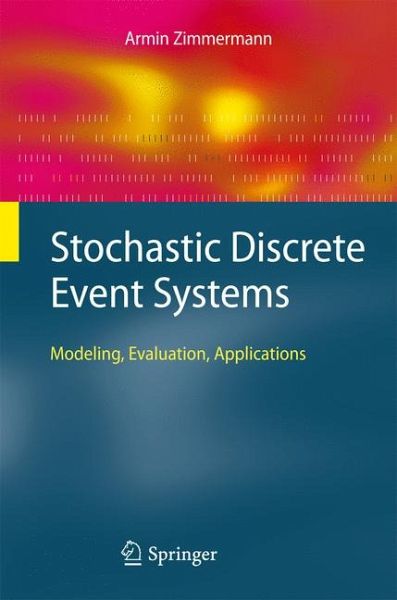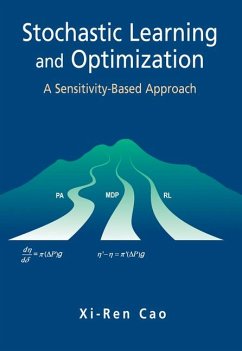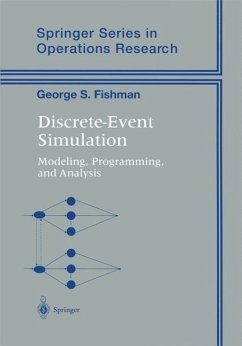
Stochastic Discrete Event Systems (eBook, PDF)
Modeling, Evaluation, Applications
Versandkostenfrei!
Sofort per Download lieferbar
72,95 €
inkl. MwSt.
Weitere Ausgaben:

PAYBACK Punkte
36 °P sammeln!
Armin Zimmermann delivers a coherent and comprehensive overview on modeling with and quantitative evaluation of SDES. An abstract model class for SDES is presented as a pivotal unifying result. Several important model classes, including queuing networks, Petri nets and automata, are detailed together with their formal translation into this abstract model class. Standard and recently developed algorithms for the performance evaluation, optimization and control of SDES are presented in the context of the abstract model class. The necessary software tool support is also covered. The book is compl...
Armin Zimmermann delivers a coherent and comprehensive overview on modeling with and quantitative evaluation of SDES. An abstract model class for SDES is presented as a pivotal unifying result. Several important model classes, including queuing networks, Petri nets and automata, are detailed together with their formal translation into this abstract model class. Standard and recently developed algorithms for the performance evaluation, optimization and control of SDES are presented in the context of the abstract model class. The necessary software tool support is also covered. The book is completed with nontrivial examples from areas like manufacturing control, performance of communication systems, and supply-chain management, highlighting the application of the techniques presented.
Dieser Download kann aus rechtlichen Gründen nur mit Rechnungsadresse in A, B, BG, CY, CZ, D, DK, EW, E, FIN, F, GR, HR, H, IRL, I, LT, L, LR, M, NL, PL, P, R, S, SLO, SK ausgeliefert werden.













